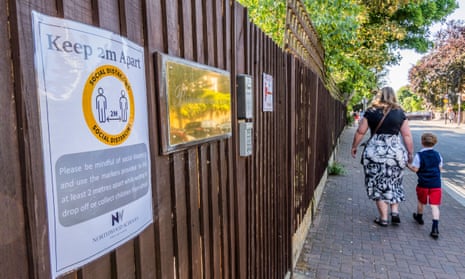I wish I was surprised by Shelter’s new research, which found that more than half of state school teachers in Britain have worked with children who were homeless or who became homeless in the past three years. But I’ve been a teacher for 15 years, and I have witnessed the housing emergency playing out in our schools first-hand.
I was still shocked, however, to learn that 136,000 children are homeless in Britain. That is 136,000 young lives who are at a disadvantage before the school day has even started.
The knock-on effect of living in bad and unstable housing is something that I have seen devastate a child’s education time and time again in the schools I have worked at – children who cannot achieve their full potential because they are tired, hungry and stressed. That’s why nine in 10 teachers with recent experience of working with homeless and badly housed children report tiredness as a key issue.
I have taught children who were thriving academically when they lived in a stable home. But then the trauma of becoming homeless and living in temporary accommodation left them withdrawn, quiet and unable to follow their lessons. There was a family at my school where all the siblings had no choice but to share a bed. They would come to school exhausted.
And I have worked with children living in hostels or B&Bs with no cooking facilities, who have routinely turned up to school hungry. My staff have handed out food hampers on numerous occasions to the families who need them. We have even collected children from where they are living to take them to school and returned them at the end of the day. When families are moved to temporary accommodation miles away from school, sometimes their parents can no longer afford to get them to us, as the fares for public transport are simply too high.
Unavoidably, these impacts widen the educational gap between homeless children and those in secure housing. Children are incredibly resilient and capable of surprising adults at every turn. But, frankly, our badly housed and homeless children are being set up to fail. And that is not right.
The impact of homelessness on education was an enormous problem across Britain before the chaos of Covid-19. And, of course, these huge interruptions to education have affected all children. But the pandemic is making things even worse for the homeless and badly housed children who were struggling immeasurably before. During the first lockdown, many children didn’t have access to wifi in their temporary accommodation or the equipment they needed to keep up with their lessons. Nor did they have the space to play and relax, as all children need to do well.
I know of one family forced to flee their home this year due to domestic abuse, with nothing more than the clothes they were wearing. They had no money, toys or belongings, and no way to access remote learning. This took its toll, with one child showing anger towards his situation, and the other becoming very withdrawn. We provided the children with what they needed, as well as some food – but it shouldn’t have to come to this. There must be better support for families to help them find a safe home when the worst happens.
Yet again, I wish I were surprised that almost three-quarters of teachers (73%) thought the education of homeless children and those living in bad housing had been more negatively affected than children in suitable homes. But this feels painfully inevitable to me. The educational gap between children with a secure home and those without is growing as a result of Covid-19 – and some educators fear it may never close. Generations of homeless children are being written off.
A safe and secure home gives a child the stability that they need to thrive. Malcolm X said that “education is the passport to the future”. Homeless children and those in bad housing will find their passports left in tatters unless society acts to right this wrong.
So what is the answer? Many teachers I know are doing what they can to protect the education and wellbeing of the homeless children in their classrooms. And they will continue to do so, alongside charities like Shelter. But to give every child a fair chance of doing well at school, every child needs a safe home. Investment in decent, locally available social housing must be the way forward.
